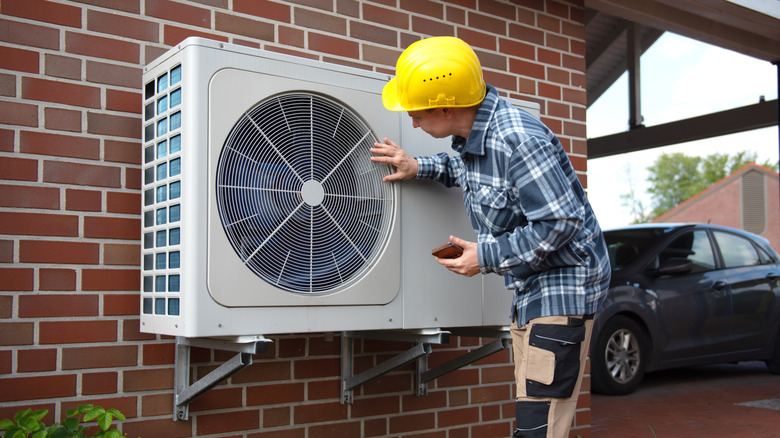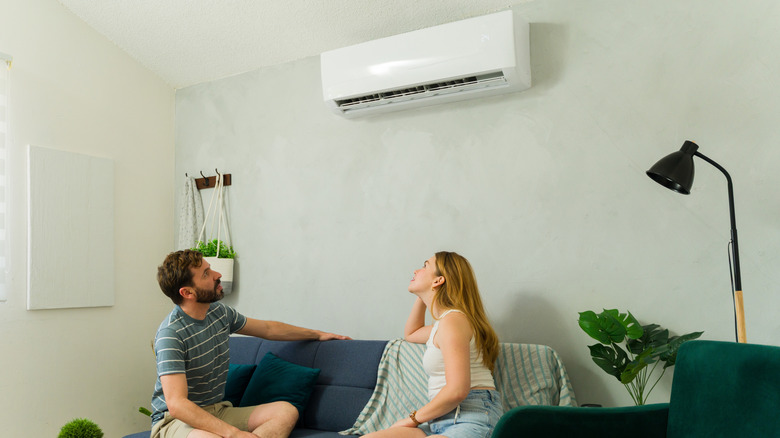Is Switching To A Heat Pump Worth The Cost? Here's What We Found
As winter approaches, many people's thoughts will turn to how high their heating bill could be through the cold spell. According to Resources, a publication dedicated to the environment and energy, prices have risen noticeably since 2019. So households are increasingly looking into different ways to find savings.
Heat pumps offer an alternative to traditional furnaces and boilers. According to the U.S. Department of Energy, they can reduce electricity consumption by as much as a staggering 75 percent. And there's even more good news. As well as providing winter warmth, heat pumps can also supply cool air in summer — able to replace both heating and central air. It may sound too good to be true, so here's a deeper dive.
Prices are typically higher for heat pumps than for conventional HVACs. On balance, switching to a heat pump should be worth the cost in the long run. Installations can often qualify for tax rebates or credits, too. There are three common types of heat pumps. Geothermal heat pumps are an eco-friendly way to regulate temperature in your home, but pipes need to be buried 5 to 10 feet below the surface, making them impractical for many. Standard air-source heat pumps use ducting, much like traditional HVACs. Then there are mini-splits, also called ductless, which have compact individual units in each room. Whichever system you choose, you can expect significant energy savings.
Heat pump costs can stack up, but should eventually pay off
Prices vary depending on performance, the space covered, and the unit's quality. For example, there are top-rated mini-split brands to consider, and some you'll want to avoid. Also, with standard heat pumps, existing ductwork may need to be replaced. While it's vital to get several quotes so you know the exact cost for your home, there are estimated ranges for the systems and their installation when planning your budget.
Air source heat pumps, probably the most common type, can cost between $5,000 and $14,500. Increasingly popular mini-splits run between $3,000 and $18,000. Geothermal heat pumps fall between $9,500 and $25,000. Against these costs, you can balance energy-cost savings, which the government estimates to be anywhere from $300 to $1,500 per year. Unfortunately, those hoping to save more money by DIYing a heat pump may be disappointed. A refrigerant is usually required, and these can only be handled by licensed contractors.
A well-maintained heat pump could last 20 years or more. Many people feel the warmth is more pleasant because it is well-balanced, rather than the typical surges associated with furnaces. Humidity may also be improved. Heat pumps are considered more environmentally friendly, and while it's a separate topic, they are also among the cheapest ways to heat your pool. Whether you're considering replacing an old HVAC or installing a new one, the consideration isn't limited to whether a heat pump is worth the cost, but rather a question of which type will give you the best value.

